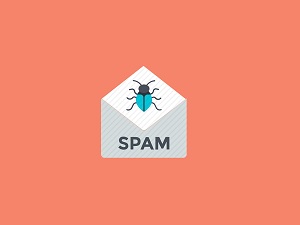 Do you feel as though you get a lot of spam mail? If so, you should know that you actually get almost a hundred times more than what you think you're getting.
Do you feel as though you get a lot of spam mail? If so, you should know that you actually get almost a hundred times more than what you think you're getting.
However, most modern email systems (including Google's G-mail) do a spectacular job of filtering, which keeps the vast majority of it from ever reaching your inbox in the first place.
Even so, you probably get an annoying amount of spam, and one of the natural questions that arises from that is some variation of 'why am I getting so much of this junk?' Believe it or not, researchers now have an answer to that very question!
A research team from Stanford University recently partnered with Google to study more than a billion emails filtered by Gmail between April and August of 2020. They found one striking common thread: You are much more likely to receive spam emails if your email address was captured as part of a data breach. In fact, that fact alone makes you five times more likely to be targeted by spam email.
In some ways, that fact isn't terribly surprising. After all, spammers and scammers operate mostly from email lists and those lists have to be generated and compiled from somewhere. It turns out that the 'somewhere' is almost always a database captured during a data breach.
This, though, points to a simple defense. If you change your email address at about the same frequency you buy a new pair of shoes, you'll periodically give yourself a chance to start fresh.
Sure, there are some challenges involved with that, not the least of which is updating your contacts with your latest email address. Also, of course, if you have hundreds of contacts that might be impractical, but if you keep a relatively low profile on the web anyway, then occasional shedding one email skin for another is a very good way to keep spam to a minimum. At the very least, it's something to consider.
Be sure to download our free report - The Top 10 Ways Hackers Get Around Your Firewall And Anti-Virus To Rob You Blind by filling out the form on this page.
Want to receive more security tips? Sign up for our Weekly Security Tips to receive a new tip in your email each week







